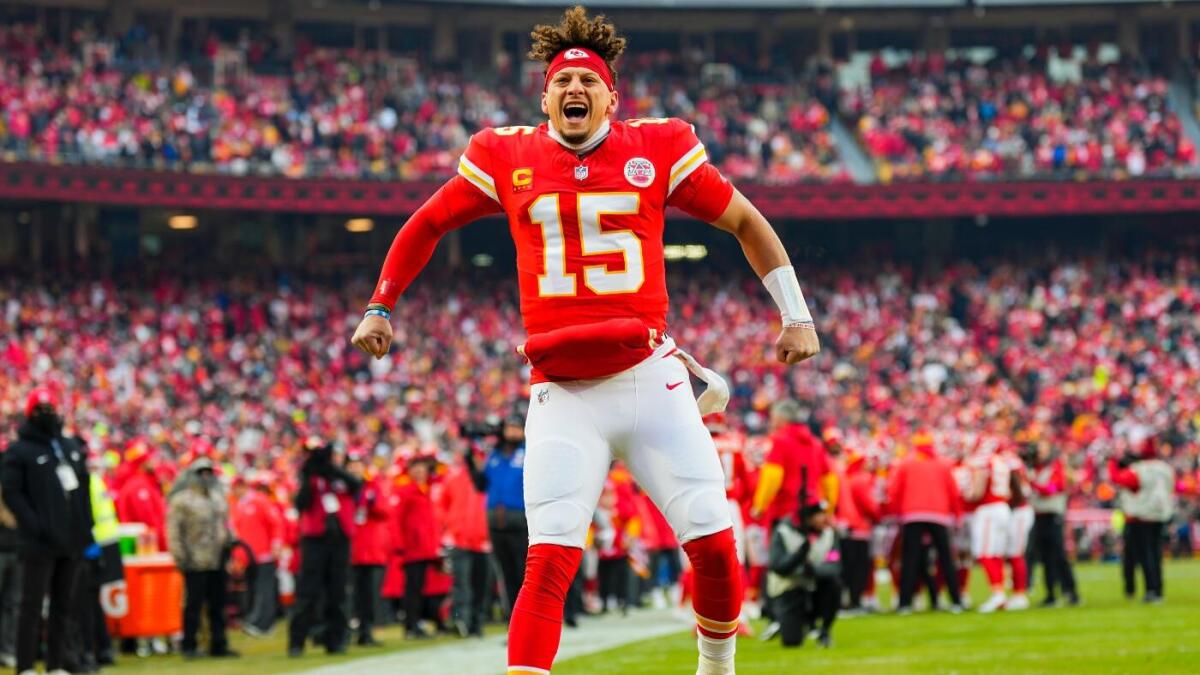The Patrick Mahomes Madden 26 Rating Controversy: A Closer Look
Introduction: The Madden Rating Phenomenon
Every year, the release of Madden NFL ratings becomes a cultural event, sparking debates among fans, analysts, and players alike. This year, the controversy centers around Kansas City Chiefs quarterback Patrick Mahomes, whose 95 overall rating in Madden NFL 26 has left many questioning the game’s evaluation criteria. Despite his Super Bowl wins, MVP awards, and consistent dominance, Mahomes finds himself as the fourth-highest-rated quarterback in the game. This discrepancy has ignited a firestorm of discussion, with many arguing that the rating is a snub and a misrepresentation of his true value.
Understanding the Madden 26 Ratings System
To fully grasp the controversy, it’s essential to understand how Madden ratings are determined. The overall rating is a composite score derived from various attributes, including accuracy, toughness, speed, and other performance metrics. The “99 Club,” reserved for the game’s elite players, represents the pinnacle of recognition. This year, seven players achieved this status, though the specific names have not been disclosed.
The ratings are not solely based on past achievements but also on projected performance and recent statistics. This means that even a player of Mahomes’ caliber can see fluctuations in their rating based on their most recent season. For Mahomes, the 2024 season may have been perceived as a “down year” compared to his usual standards, potentially influencing his lower rating.
Mahomes’ Strengths and Weaknesses in Madden 26
Mahomes’ 95 overall rating is a reflection of his strengths and weaknesses as evaluated by the game’s developers. His short throw accuracy is rated at 98, and his toughness is rated at 99, highlighting his exceptional skills in these areas. However, these high ratings were not sufficient to propel him into the 99 Club, raising questions about the weighting of different attributes in the overall rating.
One possible explanation for the lower rating could be the perceived inconsistencies in Mahomes’ 2024 season. While the Kansas City Chiefs remained a successful team, there may have been moments of inconsistency that impacted his individual statistics. Additionally, the Chiefs faced challenges that could have influenced the perception of Mahomes’ performance, even if he remained one of the league’s top quarterbacks.
The Outrage: Why Fans Are Disappointed
The primary source of outrage stems from the belief that Mahomes is the best quarterback in the NFL and should be rated as such. His track record of multiple Super Bowl victories, MVP awards, and consistent dominance makes the 95 rating seem like a significant underrepresentation of his skill and impact. Fans argue that a higher rating would better reflect his status as the league’s premier quarterback.
Another factor contributing to the controversy is the historical context of Mahomes’ Madden ratings. In previous editions, he has been a member of the 99 Club, reflecting his status as the league’s top quarterback. The sudden drop to 95 feels like a demotion, especially considering his continued success on the field. This perceived demotion has fueled the debate, with many fans and analysts questioning the fairness of the rating.
The Subjectivity of Madden Ratings
The controversy also highlights the subjective nature of Madden ratings. While EA Sports strives for accuracy, the ratings are ultimately based on human judgment and algorithms that may not perfectly capture the nuances of a player’s performance. The debate surrounding Mahomes’ rating underscores the challenge of quantifying subjective qualities like leadership, clutch performance, and the ability to elevate a team.
For example, Mahomes’ ability to make plays in critical moments and his leadership on the field are qualities that are difficult to quantify. These intangibles may not be fully reflected in the numerical ratings, leading to a perception that the rating does not accurately represent his true value.
The Impact of Madden Ratings on Players and Fans
Madden ratings have a significant impact beyond the virtual world. For players, a high rating can be a source of pride and validation, while a lower rating can be perceived as a slight. The ratings can influence a player’s marketability and endorsement opportunities, making them a significant factor in their professional lives.
For fans, Madden ratings provide a framework for evaluating players and debating their relative merits. The ratings fuel discussions and create a sense of engagement with the game and the sport itself. The controversy surrounding Mahomes’ rating demonstrates the power of these ratings to generate buzz and spark passionate debate among fans.
The Broader Implications of the Controversy
The Madden 26 rating controversy serves as a reminder of the complex relationship between video games and real-world sports. While Madden strives for realism, it is ultimately a form of entertainment. The ratings are designed to create engaging gameplay and generate discussion, even if they sometimes deviate from objective reality.
The controversy also highlights the evolving nature of player evaluation. As data analytics and advanced statistics become increasingly prevalent, the way we assess player performance is constantly changing. Madden ratings reflect these trends, incorporating a wide range of factors to arrive at a final score. However, the debate surrounding Mahomes’ rating underscores the need for a more nuanced approach to player evaluation that considers both quantitative and qualitative factors.
Conclusion: Beyond the Numbers
Patrick Mahomes’ Madden NFL 26 rating has ignited a firestorm of debate, underscoring the passion and engagement that fans have with the game and the sport. While the 95 rating may not accurately reflect Mahomes’ perceived status as the league’s best quarterback, it has undoubtedly sparked a conversation about player evaluation, the subjectivity of ratings, and the broader implications of video games on the perception of athletes. Ultimately, Mahomes’ legacy will be defined by his on-field performance, not his Madden rating. But the controversy surrounding his rating serves as a reminder that in the world of sports, even a virtual number can carry significant weight. The debate highlights the need for a more balanced and nuanced approach to player evaluation that considers both the quantitative and qualitative aspects of performance.

